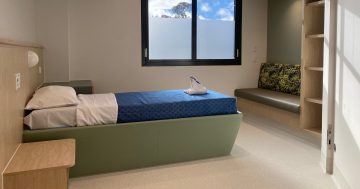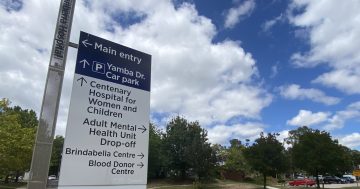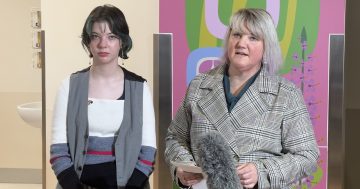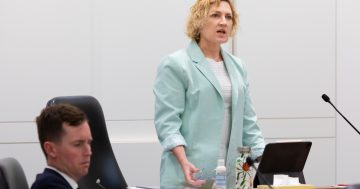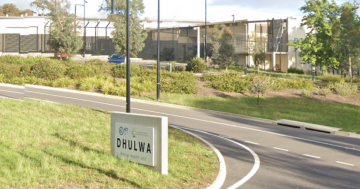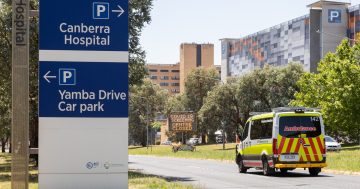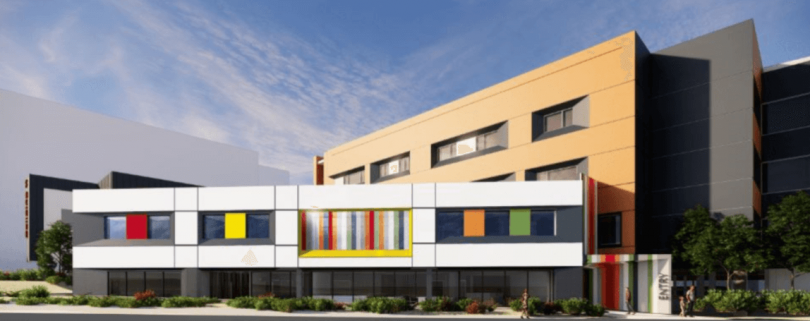
The Adolescent Mental Health Unit (artist’s impression) will likely not be completed until June 2023. Photo: ACT Health.
The opening of what will be Canberra’s only dedicated acute mental health facility for young people has been pushed back until next year, leading to continued concerns about children as young as 13 being admitted to the adult ward.
Initially, the ACT Government had planned a dedicated Adolescent Mental Health Unit as a standalone facility, opening in late 2021. The decision was then made to colocate the unit with other adolescent services within the Centenary Hospital for Women and Children, which pushed back the completion date in line with the staged delivery of the entire project.
Canberra Health Services Executive Director, Mental Health, Justice Health, Alcohol and Drug Services, Katrina Rea said high demand for inpatient beds due to COVID-19 had also impacted the completion date for the new unit as it has not yet been possible to carry out ward moves originally planned for late 2021 to allow the works to get underway.
CHS has been asked how many young people are currently in the adult unit but details were not provided before publication.
Mental Health Community Coalition ACT CEO Bec Cody said she’s looking forward to the teen-specific unit being built as “it’s really important to have specific mental health services for people who need them”.
“We know that adolescents have very specific needs and an adult mental health unit isn’t the best way of doing things,” she said.
Ms Rea said that while most children and young people with mental health conditions requiring admission are treated on a paediatric ward, the Adult Mental Health Unit does have the capacity to treat young people aged 12 years and over if it’s decided that is the safest and most appropriate place for them to receive care.
“Such an admission is rare and may occur, for example, when a patient is at risk of harming themselves or others, or of absconding before receiving the care they need,” Ms Rea explained. The layout of the unit also means young people can be cared for in a ‘suite-like’ environment away from other patients.
Ms Rea said if young people are admitted to the AHMU, it’s unlikely they would be well enough to attend the hospital school or use an educational device, although this can be organised if deemed safe to do so.
Young people are also only in the unit temporarily and will be transferred to a paediatric ward or discharged to return to their usual place of residence or alternative community-based support service, Ms Rea said.
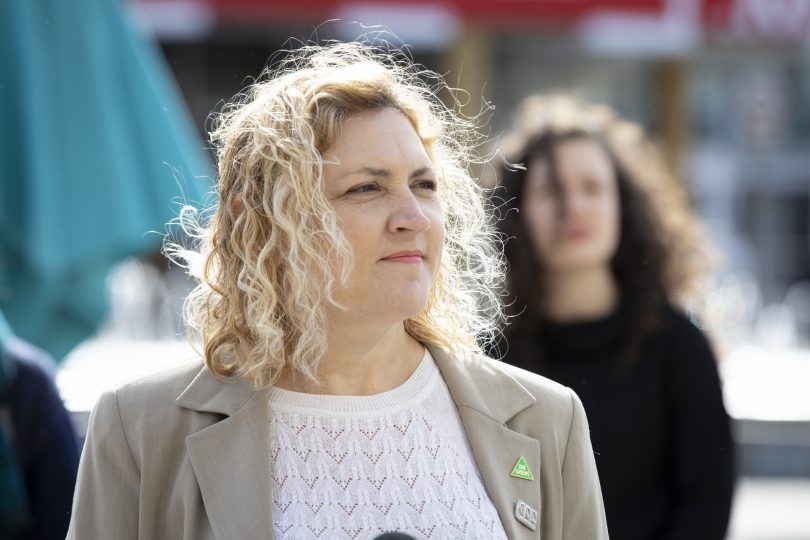
ACT Minister for Mental Health Emma Davidson said there are suitable facilities for adolescents who need mental health support. Photo: Michelle Kroll.
Ms Cody believes that the more pressing matter would be better support and increased funding of community-based mental health facilities that provide early intervention and wraparound care before acute care is required.
ACT Minister for Mental Health Emma Davidson agreed with this assessment.
“We must recognise that hospital settings are only one piece of the mental health services landscape. People with mental health lived experiences have been clear that the ACT needs more services delivering early intervention and prevention support,” she said.
Ms Davidson said the government has launched several youth-focused mental health initiatives such as MindMap and funded CatholicCare’s Youth Wellbeing Service for young people. There is also a Belconnen Safe Haven to speak to a peer worker.
She said that there are also a number of sub-acute facilities, including adolescent Step Up Step Downs.
The Opposition has also seized on data from the Productivity Commission which reported three-in-five people who present at Canberra’s hospitals for mental health care do not receive the treatment they need on time.
The ACT is also the worst-performing jurisdiction in the country.
According to the data, 41.9 per cent of people seeking psychiatric care at Canberra’s emergency departments were seen on time in 2019-20, while the national average is 68 per cent.
Opposition spokesperson for mental health Leanne Castley described the figures as “a huge concern”.
“We know the pandemic has had a big impact on people’s mental health and it is appalling that we are going backwards in the care we provide,” she said.












